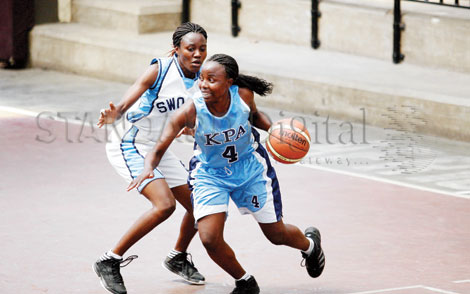×
The Standard e-Paper
Stay Informed, Even Offline
By John Lawrence
 |
| KPA basketball player Lucy Ohaga (4) battles for the ball with Strathmore’s Rachel Opinya. |
“What happens to a dream deferred? Does it dry up like a raisin in the sun or fester like a sore and then run? Does it stink like rotten meat or crust and sugar over, like a syrupy sweet?”